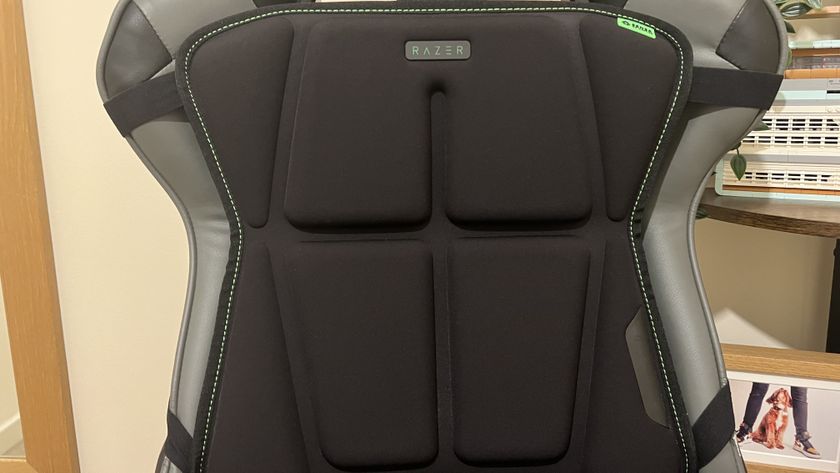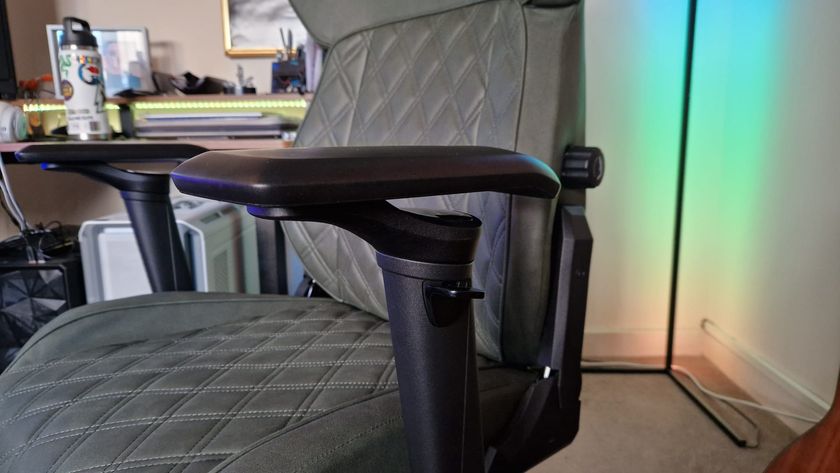I hope gaming chair brands get over their mesh phase, because it’s making them needlessly expensive
Opinion | Mesh gaming chairs are overrated and over-priced

Let’s face it, gaming chairs are already riding the line of being too expensive. An office chair designed for long-lasting comfort and ergonomics may have been touted as a luxury item before the global pandemic, but in 2024, I don’t think they should cost as much as they do.
Yes, the best gaming chairs are comfortable. Yes, they’re loud and proud about their innovative lumbar and posture support. And yes, sometimes they do have out-there designs that muted office chairs could never dream of. Most of the biggest brands still charge upwards of $400 for what is now a pretty standard set of features, and you’ll never convince me there’s no price gouging happening there.
The varying prices of similar models from brand to brand always make me question how manufacturers actually decide on a price. Sometimes I picture Wolf of Wall Street-style parties where gaming chair higher-ups drink booze, play mini golf in an office, and laugh with one another about how much they could dare to charge schmucks like me for a little bit of lumbar support.
With that over-the-top image in mind, the last thing we needed was for all the biggest gaming chair brands to put less cushioning in, leave out the fancy materials, and start charging more money for them in the name of “cooling”. Yet, that’s exactly what happened with the current trend of mesh gaming chairs.
“Guys, I’m in my mesh era”
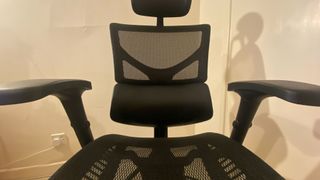
Mesh chairs are exactly that, and I’ve never really understood them. Sometimes you’ll see them disguised by the word “Ergo”, but they essentially trade the typical support a gaming chair gives you for a mesh backing. If you’re thinking of an IKEA Markus, you’re on the right lines. You might think scaling designs back would mean cheaper prices, but in fact, manufacturers seem to be using this trend to charge more for what is essentially less of a product.
Where your typical, personality-filled pink gaming chair will have a racing seat shape, leather, and cushioning, mesh options go for a more minimalist style. They have one or two layers of netted material, perforated all the way through, that’s wrapped around the edges of the seat frame so that a backrest acts almost like a hammock.
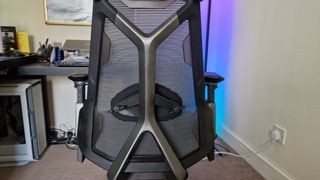
The big draw of these chairs is supposed to be their temperature control. With an almost transparent backrest, there’s apparently more “breathability”, meaning during the sweatiest gaming sessions you won’t overheat. Having tested a few of these chairs, I think that’s utter nonsense. I’ve sat in leather gaming chairs, upholstered ones, and mesh ones, and the temperature almost always feels the exact same. In fact, perforated leather is probably the one I find cools me down the most because it’s breathable while also having a cooler surface.
Sign up to the 12DOVE Newsletter
Weekly digests, tales from the communities you love, and more
Mesh chairs also tend to be weirdly heavy. Despite taking out the usual innards of a back cushion, their frames usually have more outlandish designs. This can make it harder to assemble them solo, again, leaving me to wonder why we should be charged more for them.
Pay more for less
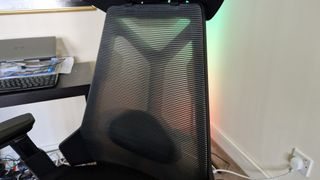
Ok, so I may not be the biggest fan of mesh gaming chairs personally, but beyond my own tastes, what’s the big deal?
What I can’t wrap my head around is the over-the-top prices of these seats. No matter what your thoughts are on leather versus mesh, you can’t deny that since mesh has become more of a mainstay in the market, gaming chair brands have used it as an excuse to release new models that cost more.
Razer introduced its Fujin line late last year, and although Razer’s Enki and Iskur V2 models are fairly pricey anyway, the mesh Fujin Pro will set you back $1,049. Asus has its Herman Miller rival, the Asus ROG Destrier Ergo Chair. It’s maybe one of the most “extra” bits of hardware I’ve ever tested, and it costs $899. Mavix, in fairness, uses a mix of leather and mesh, and even without the added cost of a heated, massaging backrest, the Mavix M7 is priced at $777. Autonomous has its Ergo chair model at $449, which isn’t as bad as the rest, but it’s still more expensive than some of today’s gaming consoles.
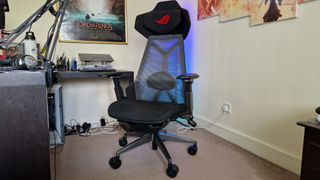
Even Boulies, the makers of my favorite gaming chair, the Boulies Ninja Pro, now has its EP460, which uses a hybrid mesh material and comes in at $299. Having more options is never a bad thing, and I’m sure there’s loads of market data telling these brands there’s a demand for them. Still, I wish they weren’t as expensive as they are, because as someone who reviews these products, I fail to see why they cost the small fortune they do.
It's not a phase mum, it's a lifestyle
The gaming chair I’m most excited by at the moment is the upcoming first from Fractal Design. The Fractal Refine looks like it’ll carry the brand’s sublime PC case innovation into ergonomic furniture, and it might just hold the solution to my mesh price problem.
The Refine is going to be available in a few different colorways and materials, including a beautifully lush Alcantara black, a light fabric, and even a few mesh options. Shockingly, all of them are counted as one product and will cost the same $549 price (except the Alcantara model, which is bizarrely $899).
This chair isn’t exactly cheap either, but what I like is that regardless of the material you choose, you’ll get the same design and features. Unless there’s some ergonomic science I don’t know about Mesh or fabric is a cosmetic choice that should be available to all, not some luxurious alternative.
Looking for more gaming furniture? Check out the best console gaming chairs, the best gaming desks, and the best standing desks.
One of my earliest memories is playing SuperMario64 and wondering why the controller I held had three grips, but I only had two hands. Ever since I've been in love with video games and their technology. After graduating from Edinburgh Napier University with a degree in Journalism, I contributed to the Scottish Games Network and completed an Editorial Internship at Expert Reviews. Over the last decade, I’ve been managing my own YouTube channel about my love of games too. These days, I'm one of the resident hardware nerds at 12DOVE, and I take the lead on our coverage of gaming PCs, VR, controllers, gaming chairs, and content creation gear. Now, I better stop myself here before I get talking about my favourite games like HUNT: Showdown, Dishonored, and Towerfall Ascension. Location: UK Remote

